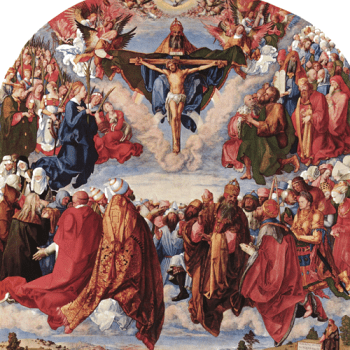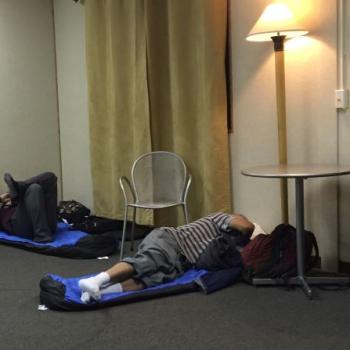 By Tim Muldoon
By Tim Muldoon
The future of Catholicism will involve two movements. First, it will involve a genuine mysticism, and second it will involve an authentic commitment to the institution of the Church.
First, mysticism. "The Christian of the future will be a mystic, or he will not exist at all." So said the late Jesuit theologian Karl Rahner (in Theological Investigations XX, 149). Mysticism, he wrote, is "a genuine experience of God emerging from the very heart of our existence." Future Catholics will take as their patron saint Doubting Thomas, who was skeptical about the resurrected Jesus until he was able to see Christ for himself. Future Catholics will believe not because they were taught to, but because Christ has revealed himself to them in deeply moving ways.
It is no longer possible to treat Catholic faith in a manner that recalls the thick Catholic subcultures that emerged from the waves of European immigration to the United States in the 19th and 20th centuries. Catholicism then was as much about national and ethnic identity, whether one was Irish or Italian or Polish or whatever, as it was about spiritual identity. I have no doubt that the faith of immigrants (my own ancestors included) was real -- it was that faith that sustained them in the face of rampant racism and helped them grown into an amazing force in American public life. The recent exhibition on the contribution of religious sisters in the United States is but one rich example of the kind of social forces that ethnic subculture Catholicism produced in recent American history. These were Catholics focused on building institutions to serve the poor, the sick, the marginalized -- in other words, their fellow Catholics.
Now a wider lens is necessary. The future of Catholicism will be about that kind of strong commitment to building institutions that serve humanity -- not just local Catholics, but everyone around the globe. Subculture Catholicism is coming to a close as the generation of Catholics born before the Second Vatican Council is aging -- and with them, the average American parish. A more hidden, yet no less real kind of Catholicism is growing in Newman Centers, within lay ecclesial movements, and among many informal groups and individuals who see the Catholic tradition as an incredibly rich resource for spiritual growth. Perhaps they are drawn by the panoply of saints whose lives testify to the thousand ways to respond to God; perhaps they are drawn to the Church's founding of the modern university, or the modern hospital, or even the modern system of social services. They see Catholicism as a big tent in which there are many ways to discern the voice of God, all of which lead individuals to greater freedom and which collectively, as a Church, are oriented toward the good of the entire human family.
Yet inasmuch as the word "Catholic" (a Greek word meaning "universal") is pretty much the opposite of the word "individual," the future of Catholicism will also depend on a collective realization that a bunch of spiritually mature people don't equal a Church, at least in the way Jesus meant. I'm pretty well convinced that the authorship of Paul's letters and the gospels had an institutional purpose in mind: building a community with everyone on the same page with regard to what it means to be disciples of Jesus. These writings call people to focus not on immediate needs like jobs or relationships or the price of bread, but direct them to focus their gaze on a more distant desire, an ultimate desire for God's love, manifested in ordinary acts of feeding the poor, sheltering widows and orphans, building a world of justice and peace and love.
A Catholic Church is necessary today because the globe's problems must be addressed by a global institution. It certainly won't be corporations that do this kind of kingdom building, since they are too concerned with the bottom line. Nor will it be nations, all of which (our own included) tend to get a little too caught up in various nationalisms, wars, and economic issues. The Catholic Church was the first truly global institution, so it's had about four hundred years to practice what globalization entails.





